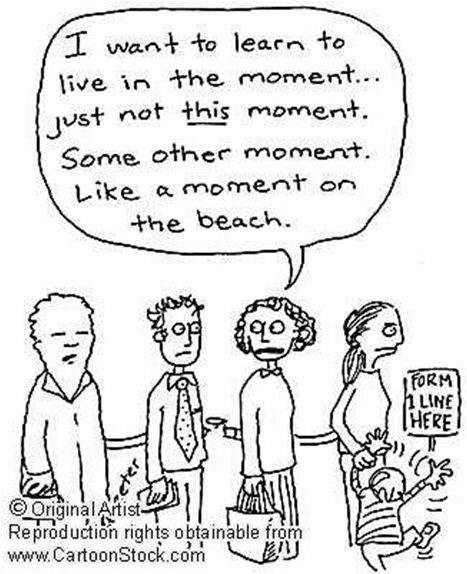Mindfulness has been defined by Jon Kabat Zinn as: “paying attention in a particular way:
- On purpose,
- in the present moment, and
- nonjudgmentally.
Mindfulness is more than just moment-to-moment awareness. It is a kind, curious awareness that helps us relate to ourselves and others with compassion.
It is not a simple concept. It’s a life’s journey.
Waking up to our lives in every moment requires considerable intention and effort. It is a lifelong endeavor that we undertake for ourselves, and then share with others. (Christopher Germer, 2005)
 Mindfulness Skills
Mindfulness Skills
When taking action in new directions, it is natural for difficult thoughts and anxious feelings to arise. Mindfulness skills help decrease the struggle with disturbing thoughts and feelings even though the frequency, or even intensity might not change. In this way, thoughts and feelings have less impact.
Mindfulness skills include:
- Acceptance and openness to internal experience involves making space for even the most intense thoughts and feelings with nonjudgmental awareness. It doesn’t mean liking them or wanting them. It means embracing thoughts and feelings as they are, rather than attempting to control or change them.
- Defusion from thoughts means that you don’t have to believe your thoughts. Thoughts are just thoughts. It is possible to let thoughts come and go without struggling against them or getting pushed around by them.
- Self as context (the observing self) means that instead of attaching to a rigid concept of self, you connect with the observing self. In this way you learn to see the world clearly, as it is, and let go of rigid concepts of how the mind says it is.
- Present moment awareness means to use the five senses to observe what is happening in the present moment. Instead of struggling to stay in the present, simply bring yourself back whenever necessary and consciously engage with whatever is happening, whether pleasant or unpleasant.

